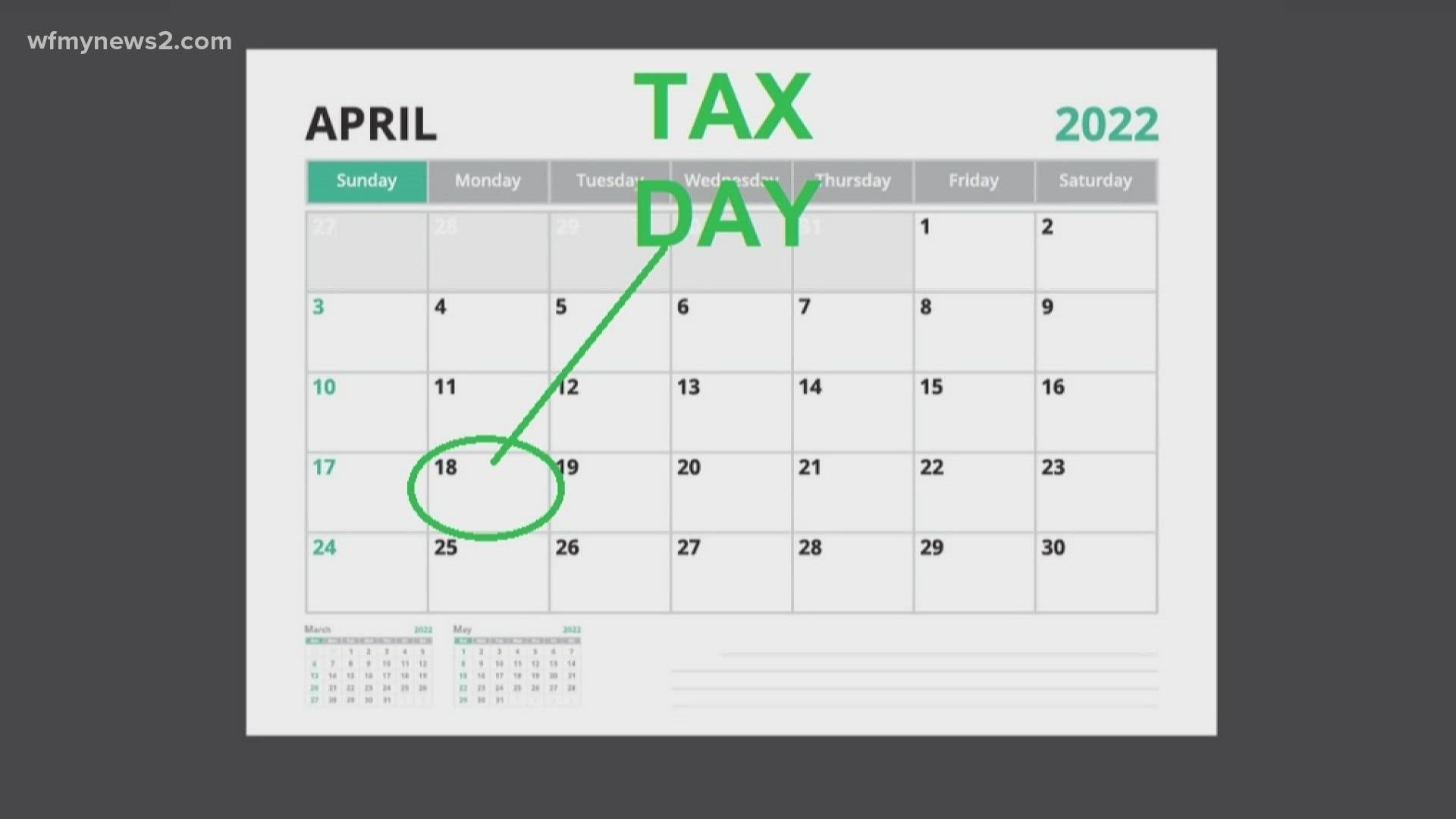GREENSBORO, N.C. — Seven days. That's right, you have seven days until your taxes are due, and by due, I mean pay up even if you can't figure it all out.
“Keep in mind an extension is an extension to file, not an extension to pay so regardless of that money is due the money is due,” said Ryan Dodson of Liberty Tax Services.
Tax Day is Monday, April 18, 2022, whether you’re filing or filing for an extension.
If you have any questions or concerns about your taxes, calling the IRS may not help get you an immediate answer.
The IRS says record numbers of calls are coming in on tax issues this season. The agency is only answering only about 20% of calls.
The IRS commissioner hopes to improve that rate in the 2022 fiscal year and bring that number up to about a 70% rate.
The NC Department of Revenue didn't start accepting tax returns until March. Their website says most taxpayers due to get refunds will get it by the end of April.
WHAT IF YOU LIVE IN ONE STATE & WORK IN ANOTHER?
“So if you live in one state and work in another state, most taxpayers have to file two tax returns, a resident tax return where they live, and a non-resident tax return where they earn money,” said Mark Steber, a spokesperson for Jackson Hewitt Services.
DOES EVERYONE HAVE TO FILE A TAX RETURN?
No. According to the IRS, if your salary is below a certain threshold, you are not required to file your taxes.
In 2021 the minimum annual income is:
$12,500 Single filing status, if under age 65
$25,100 Married filing jointly if both spouses are under 65
&18,800 Head of household
$25,100 Qualifying widower
If you're under these amounts, you don't have to file, but you still might want to anyway.
“You might not have a filing requirement but you could have a filling opportunity to get that money and each year 1 million people forgo about a billion dollars in uncollectable tax-refundable money,” said Steber.
For example, you can't get the Child Tax Credit money if you don't file taxes, and it's a chunk of change, between $3,000 and $3,500 per child.

